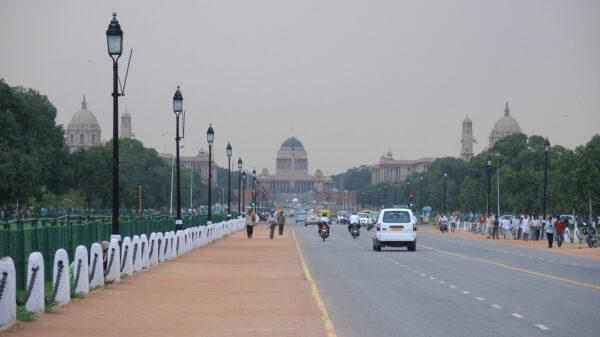News Editor Samuel Teale Chadwick interviews the creators of Chime Out, a new music review website.
Launched early this year, Chime Out set out to approach music discourse differently. Reminiscent of the likes of VAN Magazine, it accentuates the nuances and debates in an accessible way. Critical, provocative, incisive, and casual, Chime Out is a smorgasbord of esoteric references and fresh perspectives, created and compiled by Mattie and Marie, two music graduates from the University of Glasgow: “The music scene is diverse and exciting,” their website says, “but too much of media continues to have the same conversations over and over, side-lining certain artists, genres, and politics. We want to talk about the sidelinesâ€.
In autumn 2019, they noticed that criticism which doesn’t take an academic tone is often not valued: “This is the kind of the space we were hoping Chime Out would start to crack a little bitâ€, Mattie says. On the accompanying memes, he comments: “It doesn’t always have to be a profound intellectual conversation. If classical music is policed so people can only talk about it if they’re super-knowledgeable or academics, then you’re already making it limiting and potentially an intimidating space to inhabit. It’s engaging, it’s concise – I admit it’s a very certain nicheâ€. As for music criticism, “objectivity is great to a certain degree, but also you do have to recognise that you are a person with lived experiences, and you do have biases like absolutely everyoneâ€. The conversational tone, Marie adds, aims “to have those nuanced discussions in a way that’s more inclusive to engage with readers and the wider public, and trying to shift the discourse so it’s not so exclusiveâ€.
Would Chime Out have happened were it not for the pandemic? Yes, “but a lot slower†says Mattie. Even until live music resumes, Marie remarks, “there’s still a lot to be commenting onâ€. Indeed, there is – in the pipeline are articles about the sustainability of streaming. 24/7 accessibility is “wonderful†in some ways, says Marie, “but in other ways it’s just not sustainable because that amount of energy is such a demand on our natural resources that in, say, twenty years’ time, it’s not going to be possible. How do we navigate that? Also, due to this constant accessibility, the value of music in monetary terms is being driven down. How do we go forward having artists that aren’t being paid enough and the Big Tech companies that are obviously being paid very well? It’s a very big web which I’m looking forward to attempting to untangle… The innovation is great, but it’s not enough on its own. You need to have an innovation that is sustainable. On that note, advertising in streaming we should take more seriouslyâ€.
“It would be remiss not to talk about articles we have in the works,†Mattie says. “I’ve been very conscious of trying to spotlight artists that I think are doing something really good or representing communities that aren’t really represented, including Indigenous artists. A lot of the time, the responsibility for representation can be misplaced onto the people who are not in the position of privilege, when they have less power to enact these things. If you’re only looking out for yourself, it’s very slow progress, whereas if you work more as a community then you can effect more change”.
“Absolutely,” says Marie, “The people running the programmes have the power to bring about change. It’s important to acknowledge that equality – and having the opportunity for diverse thinking from different perspectives – makes for better problem solving, better art, and better productions. It’s also more inclusive, as when this happens, people will see themselves more represented. When I repeatedly heard someone saying: ‘This opera isn’t for me, I’m not interested’, it’s because they don’t see themselves in it [and] can’t relate to it. But if we had that diversity, more people would feel welcomed into this wonderful world of music that is really exclusionary, for not a very valid reason, and there’s never a valid reason. Including a queer love story in ‘Marriage of Figaro’ should be possible, but it seems so entirely radical. Shakespeare is relevant, because the way people present it is constantly changing, but the former isn’tâ€.
As Mattie points out, “Music is a creative subject, how you engage with it should be creative. Creative license is seen as valid in plays, whereas with opera it is taboo, it’s very jarringâ€. I wonder, is classical music undeniably relevant today? “I’d really want it to be,†says Mattie, “but the reason I ended up not going into classical singing is that I couldn’t express myself creatively even if I absolutely adore it – it has very strict confinements to it, I findâ€.
Marie adds that, due to cuts to education, music “is not accessible. People not even able to play music at school, that does lead to it becoming more exclusive and the group becoming smaller and smaller. There are so many benefits, and yet we seem to be cutting it out for more and more peopleâ€. Although he doesn’t like to pigeonhole, Mattie adds that “any attempt to be more accessible and demand accountability [is not equivalent] to saying inaccessibility is this box you can’t escape from; it’s saying there is room for improvement compared to other genres we see. That’s a bigger statement to say. Inaccessibility is challenging, but it’s important to bring it up because the last thing I want to do is see classical music go from inaccessible to completely irrelevantâ€.
Although some headlines and articles give the “depressing†impression that this is an intractable problem, Marie points out that “if you’re going to talk about inaccessibility you’ve got to talk about the things that are being done and can be done (such as outreach programmes and schemes). It can’t just be a blanket statement; it has to lead to a conversationâ€.

















